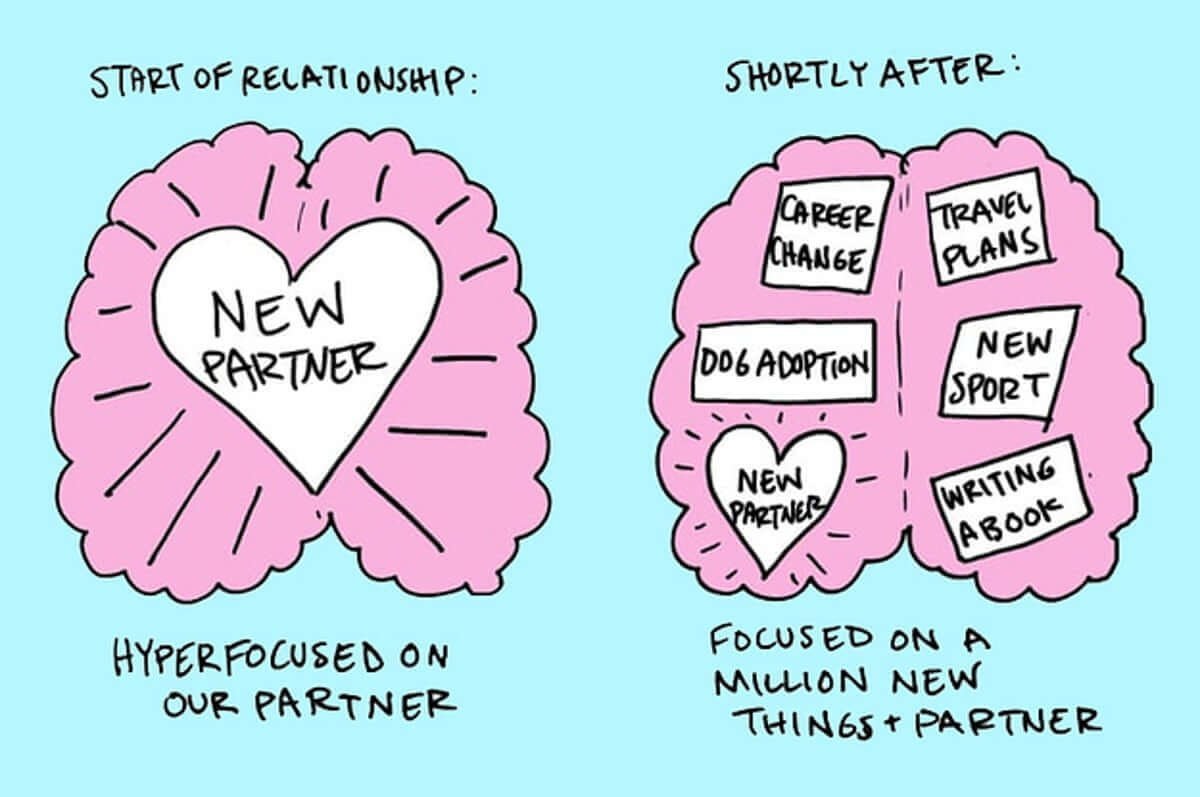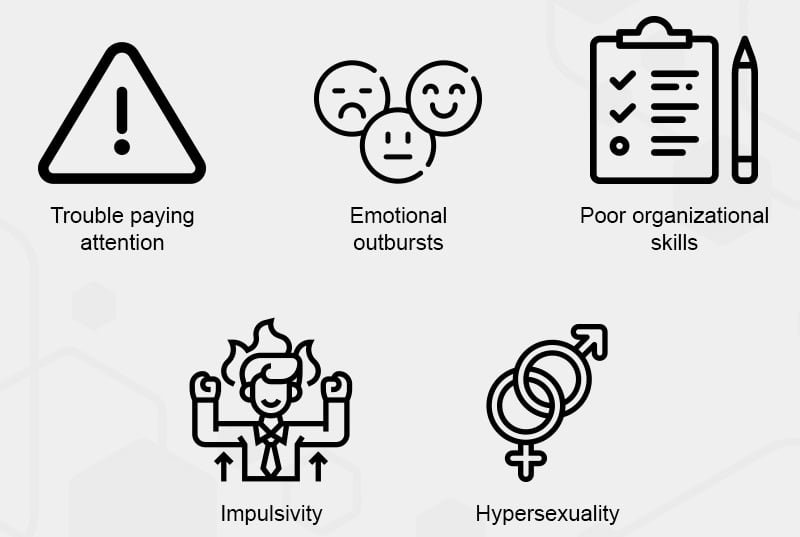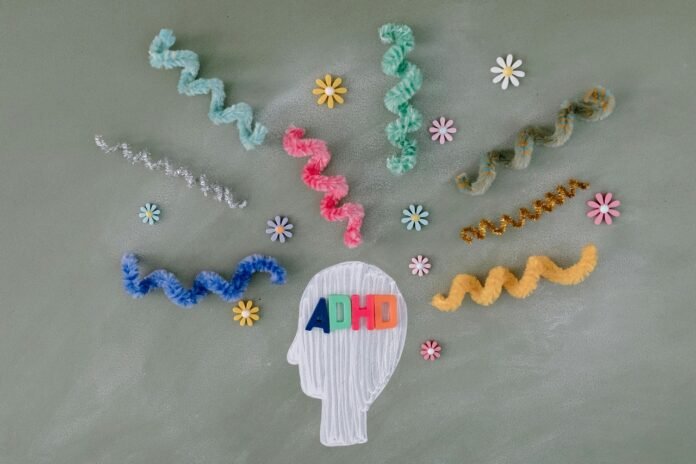Exploring a relationship with someone who has ADHD can be like trying to solve a puzzle with missing pieces. However, understanding and patience are key.
Investigating strategies to support your partner through their challenges can lead to a more fulfilling and harmonious partnership. These practical tips may provide valuable insights into fostering a healthy and loving connection, even in the face of ADHD-related obstacles.
A Primer on ADHD
If you’re dating someone who has ADHD, understanding the basics of ADHD can provide valuable insights into their experiences and behaviors. ADHD, or Attention-Deficit/Hyperactivity Disorder, is a neurodevelopmental disorder that can impact a person’s ability to focus, control impulses, and manage time effectively. Individuals with ADHD may struggle with organization, maintaining attention, and following through on tasks.
Managing symptoms of ADHD involves implementing strategies tailored to the individual’s needs. This can include using tools like planners, setting reminders, breaking tasks into smaller steps, and creating a structured environment. Seeking support from healthcare professionals, such as therapists or psychiatrists, can also be beneficial in developing coping mechanisms and treatment plans.
Building empathy towards your partner with ADHD involves recognizing that their challenges aren’t a choice but a part of their neurobiology. Improving communication by actively listening, being patient, and expressing support and understanding can strengthen your relationship and create a more supportive environment for both of you.
The Relationship Challenges of ADHD
Managing a relationship with someone who’s ADHD can present unique challenges that require understanding and patience. When maneuvering these challenges, critical to take into account various aspects that can impact the relationship dynamics deeply.
Here are some key areas to focus on:
- Communication strategies: Effective communication is crucial in any relationship, but becomes even more important when one partner has ADHD. Clear and concise communication, active listening, and setting up structured routines can help in fostering better understanding.
- Time management: Individuals with ADHD may struggle with time perception and organization. Being mindful of this and implementing strategies like using calendars, reminders, and breaking tasks into smaller, manageable chunks can aid in improving time management within the relationship.
- Understanding emotions: ADHD can sometimes lead to emotional dysregulation. Learning to recognize and validate each other’s emotions, practicing empathy, and seeking therapy can assist in managing emotional challenges effectively.
- Support systems: Building a strong support network, which may include therapists, support groups, or family members, can provide valuable assistance in managing the ups and downs that come with ADHD in a relationship.
What ADHD and Romantic Relationships Can Look Like
In romantic relationships, managing ADHD with understanding and patience can lead to deeper connections and mutual growth. Communication strategies play an important role in handling the challenges that may arise. It’s essential to establish open and honest communication channels to express needs, feelings, and concerns effectively. Providing emotional support is another key aspect. Offering reassurance, empathy, and validation can help your partner feel understood and valued.
Time management can be a significant hurdle in relationships involving ADHD. Setting up routines, reminders, and schedules together can aid in creating a sense of predictability and stability. Additionally, establishing clear relationship boundaries is essential. Clearly defining expectations, boundaries, and responsibilities can prevent misunderstandings and conflicts.
Lastly, incorporating self-care practices is essential for both partners. Taking time for oneself, practicing relaxation techniques, and engaging in activities that bring joy and fulfillment can help manage stress and enhance overall well-being in the relationship. By implementing these strategies, you and your partner can cultivate a healthy and supportive environment for your romantic journey.

Tips to Live, Love, and Compromise in Relationships With ADHD
Managing a relationship with someone who’s ADHD requires patience and understanding.
Educating yourself about ADHD can help you both communicate better and find common ground.
Remember to take your time, be mindful of red flags, and establish your boundaries to foster a healthy and fulfilling relationship.
1. Get Educated
To build a strong and understanding relationship with someone who’s ADHD, educating yourself on the challenges and strategies can make a significant difference in how you navigate your connection together. Understanding boundaries, communicating effectively, having a support system, and practicing patience and understanding are essential to keep in mind.
Here are some practical tips to help you in this journey:
- Understand boundaries: Respect each other’s personal space and limits.
- Communicate effectively: Be clear, patient, and understanding in your communication.
- Support system: Encourage your partner to seek professional help or join support groups.
- Patience and understanding: Approach challenges with empathy and a willingness to learn and grow together.
2. Wait Before You Make a Long-term Commitment
Consider taking your time before committing to a long-term relationship with someone who’s ADHD, as understanding and adjusting to each other’s needs may require extra patience and communication.
Communication strategies are essential for navigating challenges and fostering understanding. Practice patience as you both learn to adapt to each other’s unique traits and tendencies. Setting clear boundaries can help manage expectations and prevent misunderstandings.
Don’t hesitate to seek support from therapists, support groups, or counseling to enhance your relationship. Through this journey, both of you can experience personal and relationship growth, developing a deeper connection based on mutual understanding and respect.
Take the time to nurture your bond, and remember that relationships require effort and understanding from both parties.
3. Be Aware of Relationship Dynamics That are Harmful in the Long Run
Take note of harmful relationship dynamics that may develop over time when dating someone with ADHD to proactively address and maintain a healthy relationship. It’s essential to establish healthy boundaries, enhance communication skills, practice patience and understanding, prioritize self-care strategies, and work towards relationship growth.
- Healthy Boundaries
Establish clear limits to make sure both partners’ needs are met and respected. - Communication Skills
Improve communication by actively listening and expressing thoughts and feelings effectively. - Patience and Understanding
Cultivate patience and understanding to navigate challenges with empathy and support. - Self-Care Strategies
Prioritize self-care to maintain individual well-being and strengthen the relationship’s foundation.
4. Learn Your Deal Breakers
Understanding your deal breakers is important for managing relationships with ADHD successfully and maintaining a healthy balance of love, compromise, and self-respect.
Identifying boundaries is essential to guarantee your needs are respected. Communicate openly about what behaviors or situations are unacceptable for you.
Understanding triggers that may lead to conflicts or misunderstandings can help you navigate potential challenges. Seeking support from a therapist or support group can provide valuable insight and strategies for coping with ADHD-related issues.
Finding balance between accommodating your partner’s needs and honoring your own limits is key to a fulfilling relationship. By recognizing and respecting your deal breakers, you can cultivate a relationship that’s built on mutual understanding and respect.
5. Decide on Your Must-haves and Find Ways to Make it Work
To create a strong foundation for your relationship with someone who’s ADHD, it’s important to identify your must-haves and explore ways to effectively incorporate them into your partnership.
When maneuvering a relationship with ADHD in the mix, consider the following:
- Communication strategies: Establish open and honest communication channels to guarantee clarity and understanding.
- Setting boundaries: Clearly define boundaries that respect both your needs and those of your partner.
- Finding balance: Work towards a balance between supporting your partner and taking care of your own well-being.
- Seeking support: Don’t hesitate to seek help from therapists, support groups, or resources specializing in ADHD.
- Embracing differences: Celebrate the unique perspectives and strengths that come with ADHD, fostering a more inclusive and understanding relationship dynamic.
6. Enjoy Yourself
Embracing enjoyment while managing relationships with ADHD involves finding creative ways to appreciate each other’s unique qualities and foster a harmonious connection. Have fun together by exploring shared interests and trying new activities that cater to both your needs.
Stay positive and focus on the strengths and joys your relationship brings. Communicate openly about your feelings, needs, and concerns, ensuring that both partners feel heard and understood.
Be patient with each other, recognizing that ADHD can present challenges that require understanding and flexibility. Show support by being a reliable source of encouragement and assistance when needed.
7. The Couple Who Learns and Grows Together, Stays Together
As partners maneuvering a relationship with ADHD, embracing growth, learning, and compromise together can foster a deeper connection and resilience in facing challenges. When navigating this journey, remember to:
- Communication strategies: Establish open and honest communication channels to express needs and concerns effectively.
- Fun activities: Engage in enjoyable hobbies or outings that promote bonding and reduce stress.
- Support systems: Build a network of support, including friends, family, or therapists, to help navigate difficult times.
- Self-care practices: Prioritize self-care routines to manage stress levels and maintain individual well-being.

Frequently Asked Questions
How Can I Best Support My Partner With ADHD in Managing Their Symptoms and Staying Organized?
To best support your partner with ADHD in managing symptoms and staying organized, focus on time management, task delegation, medication support, stress management, and positive reinforcement. Communicate openly, create routines, offer help, and show patience and understanding.
Are There Specific Communication Strategies That Work Well When Dating Someone With Adhd?
When dating someone with ADHD, effective listening is important. Set clear expectations, offer positive reinforcement, and maintain open communication. Understand boundaries and be patient. Your support and understanding can make a significant difference in your relationship.
What Are Some Common Misconceptions About Dating Someone Who Has ADHD That I Should Be Aware Of?
Dispelling misconceptions about dating someone with ADHD is important. Understand the challenges, build empathy, foster patience, and promote acceptance. People with ADHD are unique individuals deserving understanding, not judgment. Embrace their differences with compassion.
Help your partner with ADHD in social situations by practicing active listening, offering reassurance, and establishing clear boundaries. Understand their challenges, provide emotional support, and encourage coping strategies to navigate relationship dynamics effectively.
Are There Any Resources or Support Groups Available for Partners of Individuals With ADHD That I Can Utilize?
When you seek support, online forums, therapy options, support groups, educational workshops, and counseling services offer valuable resources. Engage with these platforms to gain insights, connect with others, and access guidance for managing challenges with your partner.
Conclusion
To sum up, dating someone who has ADHD can present unique challenges, but with understanding and communication, a successful relationship is possible.
Did you know that studies show individuals with ADHD are more likely to experience feelings of rejection and low self-esteem in relationships?
By being patient, supportive, and willing to compromise, you can create a strong and lasting connection with your partner who’s ADHD.
Remember, love and understanding are key in handling the ups and downs of ADHD in relationships.





